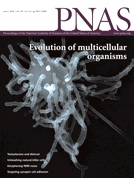 An article in the Wall Street Journal (August 27, 2012) titled “Tricks from the Elderly to Stop Worrying” by Shirley S. Wang included several references to research conducted by Distinguished Professor Arthur A. Stone, PhD.
An article in the Wall Street Journal (August 27, 2012) titled “Tricks from the Elderly to Stop Worrying” by Shirley S. Wang included several references to research conducted by Distinguished Professor Arthur A. Stone, PhD.
The article, which explored the interconnections among aging, feelings, health and longevity, cited a study by Dr. Stone and colleagues published in the Proceedings of the National Academy of Sciences on the age distribution of psychological well being in the United States. The authors analyzed the results of 340,847 telephone interviews conducted by the Gallup Organization.
Ms. Wang quoted Dr. Stone as saying that the analysis showed a drop-off in the amount of stress and worry as people get older. The article included a summary of several findings from the study:
- Stress peaks in the early 20s for most people, and is sharply higher in women than in men, but then steadily declines through old age.
- Feelings of enjoyment and happiness are highest among young adults, gradually decline in midlife, then rise again in later years.
- People tend to worry the most in midlife, from about age 40 to the early 50s, after which feelings of worry decrease.
- Anger is at its peak in early adulthood but then begins a long, gradual decline.
- Sadness stays relatively constant throughout life, although women experience more sad feelings than men.
Ms. Wang suggested in her article that an understanding of how emotions change with age could provide clues to helping people live longer and healthier lives and assist in the development of new treatments for depression in the elderly.
Dr. Stone is Distinguished Professor of Psychiatry and Psychology in the Department of Psychiatry and Behavioral Science at Stony Brook University and the Director of the Applied Behavioral Medicine Research Institute. Joseph Schwartz, PhD and Joan E. Broderick, PhD from Stony Brook University and Angus Deaton, PhD from Princeton University were co-authors with Dr. Stone of the PNAS article titled “A snapshot of the age distribution of psychological well-being in the United States” published in April 2010.